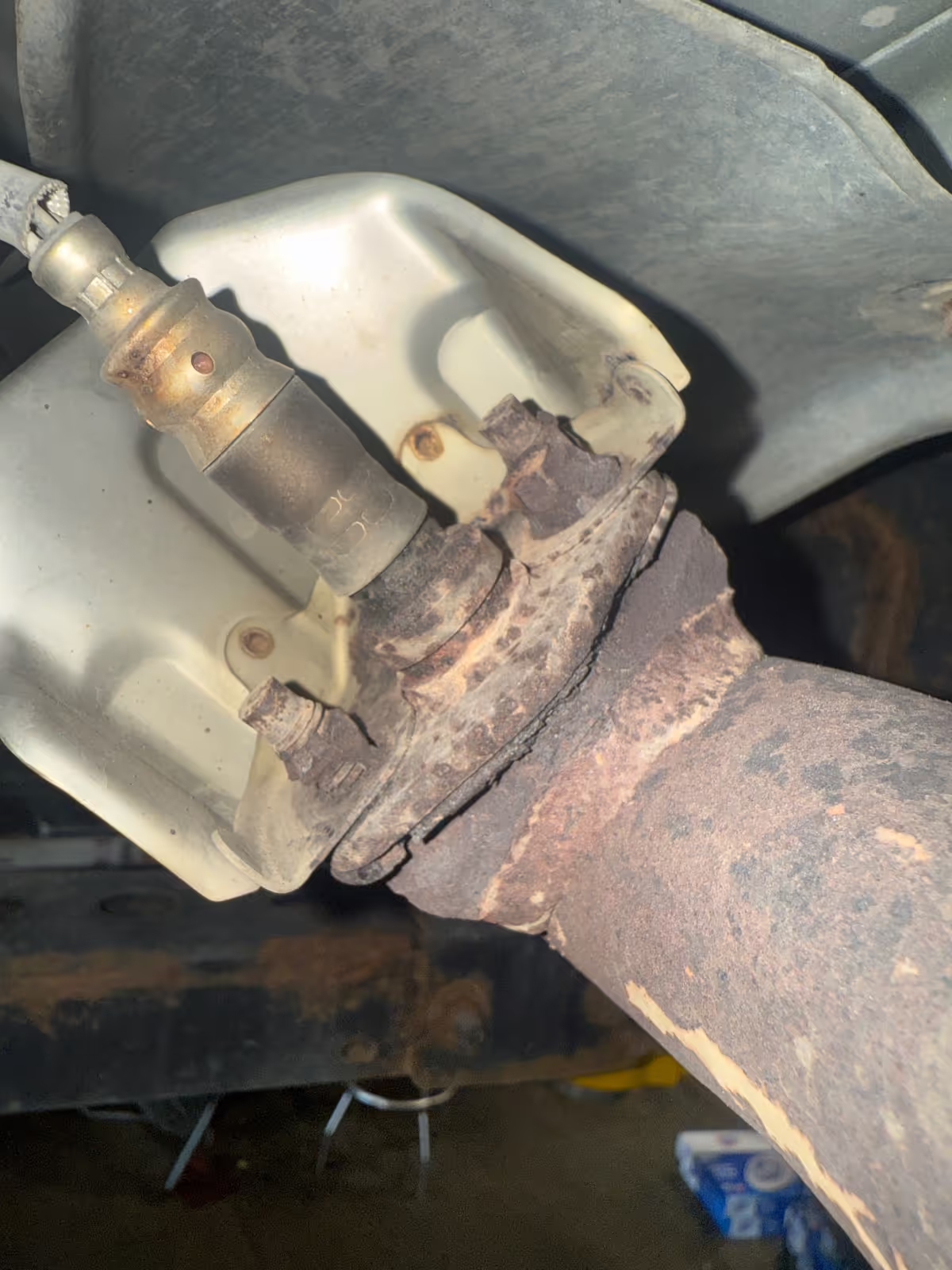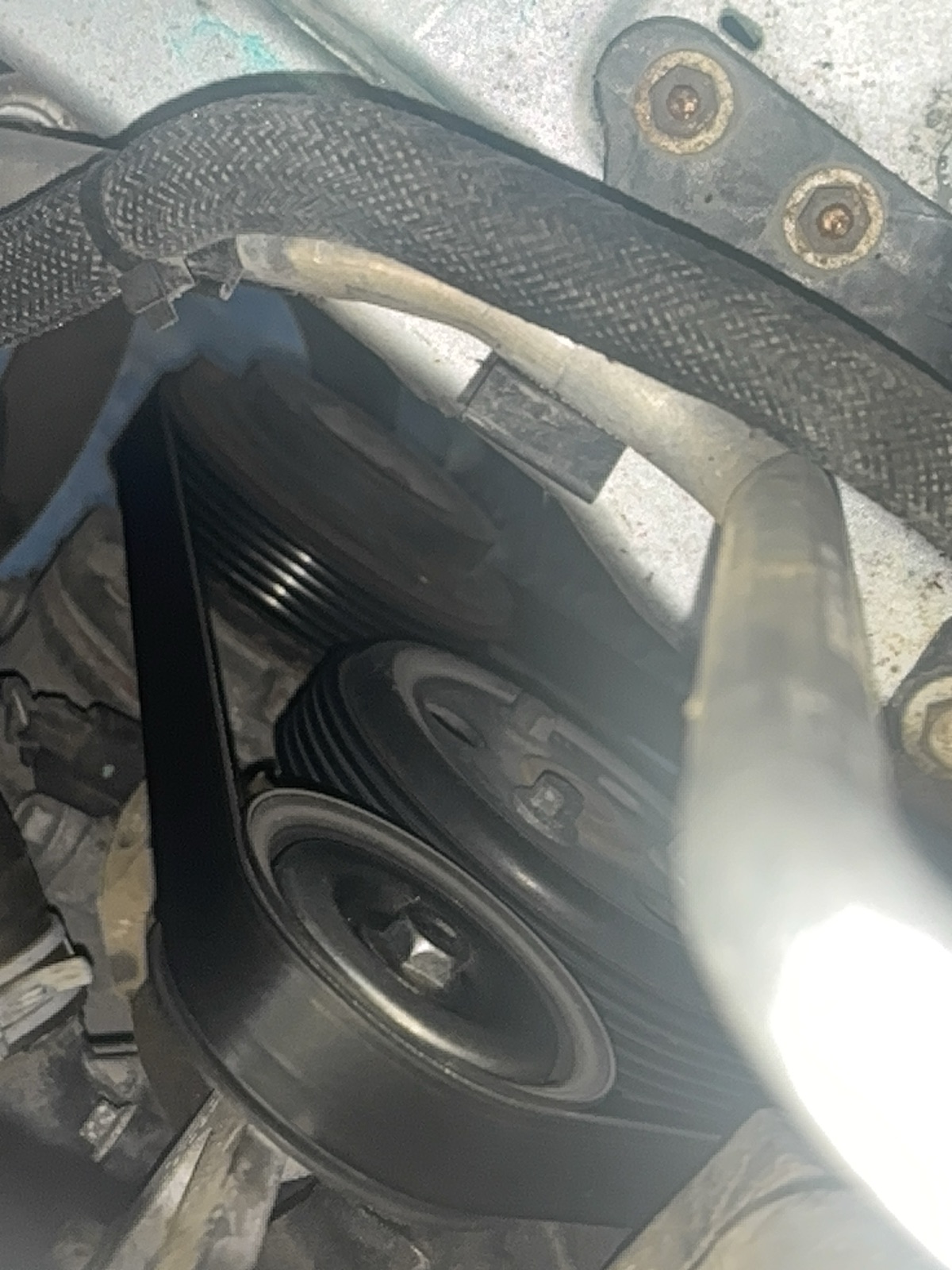Why is my 2004 Toyota Tundra check engine light on with what sounds like an exhaust leak?

Image designed by Service Stories
Quick Summary
- Issue: Check engine light with suspected exhaust leak
- Vehicle: 2004 Toyota Tundra Limited V8
- Problem: Missing oxygen sensor fell out of exhaust
- Solution: Oxygen sensor reinstallation with new gasket
- Location: Omaha service
Summary
A check engine light in a 2004 Toyota Tundra with exhaust concerns often indicates oxygen sensor problems. Gateway Auto's ASE-certified technicians discovered the Bank 1 Sensor 2 oxygen sensor had completely fallen out of the exhaust pipe when its mounting bolts rusted away. After cleaning the threads and installing a new gasket, the sensor was properly reinstalled, eliminating the check engine light and restoring proper emissions monitoring.
At Gateway Auto, we recently repaired this emissions issue on a 2004 Toyota Tundra caused by a missing oxygen sensor. Here’s what happened—and how we fixed it.
5 Signs Your Tundra's Oxygen Sensor Has Failed
- Check engine light with EVAP or catalyst efficiency codes
- Oxygen sensor physically missing from exhaust pipe
- Exhaust noise or smell from loose connections
- Poor fuel economy or rough idle
- Failed emissions testing
What We Found: 3 Key Issues
1. Missing Oxygen Sensor
The Bank 1 Sensor 2 oxygen sensor had fallen out when mounting bolts rusted away.
2. Damaged Threads
The exhaust pipe threads required cleaning to properly secure new hardware.
3. Failed Gasket
A new gasket was needed to ensure a proper seal and prevent exhaust leaks.
Our 4-Step Repair Process
- Diagnostic Testing
→ Located the missing B1S2 oxygen sensor caught on the cross member. - Thread Preparation
→ Cleaned rusted threads on the exhaust pipe mounting stud. - Gasket Replacement
→ Installed a new gasket for proper sealing. - Sensor Reinstallation
→ Properly secured the oxygen sensor and verified operation.
3 Ways to Prevent Oxygen Sensor Problems
- Regular Comprehensive Inspections
Check sensor mounting and connections during service visits. - Exhaust System Maintenance
Address rust and corrosion issues before bolts fail completely. - Check Engine Light Diagnostics
Never ignore check engine lights, as they often indicate oxygen sensor or emissions issues.
What Customers Say
"Found the exact problem quickly. Check engine light is off and truck runs great." — Jeff R.
"Professional diagnosis saved me from expensive guesswork repairs." — Mike D.
Quick FAQ
Q: How do oxygen sensor mounting bolts rust away?
A: Road salt, moisture, and exhaust heat cause gradual corrosion of steel mounting hardware over time.
Q: Can I drive with a missing oxygen sensor?
A: Briefly, but you’ll have poor fuel economy, emissions problems, and potential engine damage from incorrect air-fuel ratios.
Q: Will this problem come back?
A: Proper installation with new gaskets and hardware should prevent future issues for many years.
Don’t Ignore Check Engine Lights
Check engine lights indicate emissions system problems that can affect performance and fuel economy. If your Tundra is showing warning lights or you suspect exhaust issues, schedule engine diagnostics with Gateway Auto in Omaha today for professional oxygen sensor service.




